Medicine Careers
On this page, you will find an expansive list of careers that fall under the "Medicine" category in STEMM. Click any career to learn more about it.

Clinical ethicists provide guidance on ethical issues in patient care and treatment, advising healthcare teams, developing ethical policies, and conducting consultations with patients and families.
Image source: Cleveland Clinic
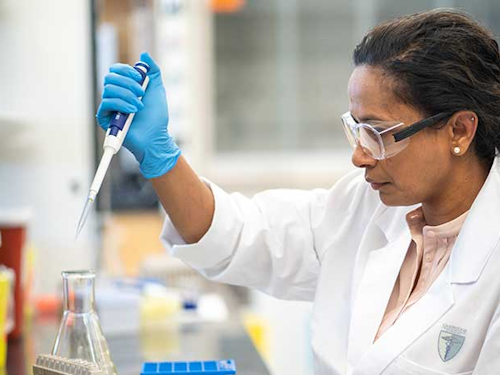
Clinical laboratory technicians perform laboratory tests to help diagnose, treat, and prevent diseases. They work under the supervision of medical technologists or laboratory managers to analyze bodily fluids, tissues, and other samples.
Image source: Cambridge College of Healthcare & Technology

Clinical trials managers oversee clinical trials, ensuring compliance with regulatory standards and the collection of high-quality data.
Image source: Polymorphic Games Studio
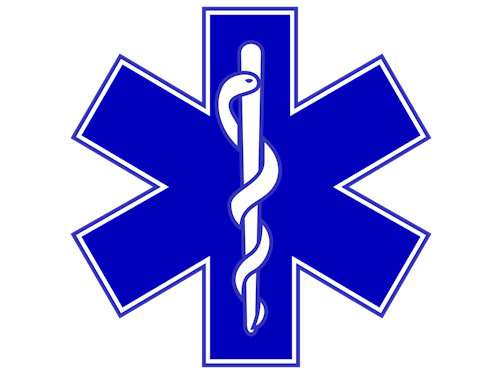
Emergency Medical Technicians (EMTs) provide critical care and transport for patients in emergency situations. They are often the first responders to medical emergencies, providing life-saving interventions and stabilizing patients for transport to medical facilities.
Image source: Wikipedia
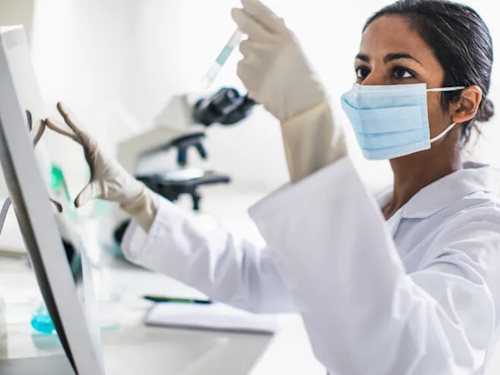
Epidemiologists study the patterns, causes, and effects of health and disease conditions in defined populations. They play a critical role in public health by investigating outbreaks, monitoring disease trends, and implementing prevention strategies.
Image source: USCOnline

Forensic nurses investigate and manage infectious diseases in forensic settings, such as prisons and crime scenes, and provide care to victims of violence.
Image source: University of Utah College of Nursing

Global health specialists develop and implement programs, conduct research, and collaborate with international organizations to address health issues and improve healthcare outcomes worldwide.
Image source: Shemmassian Academic Consulting

Health communication specialists develop communication strategies to inform the public about health risks and promote healthy behaviors. They create materials and campaigns to distribute health information.
Image source: Grand Canyon University

Health educators teach people about behaviors that promote wellness. They develop and implement strategies to improve the health of individuals and communities.
Image source: Purdue Global

Infection control nurses specialize in preventing and controlling infections within healthcare settings. They develop and implement infection control policies and procedures.
Image source: IntelyCare
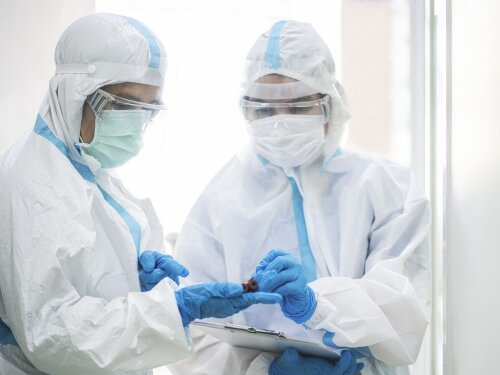
Infectious disease doctors, also known as infectious disease specialists, diagnose and treat infections caused by bacteria, viruses, fungi, and parasites.
Image source: US News

Quantitative public health researchers use quantitative methods to assess public health interventions and their impact on infectious diseases.
Image source: US Department of Defense
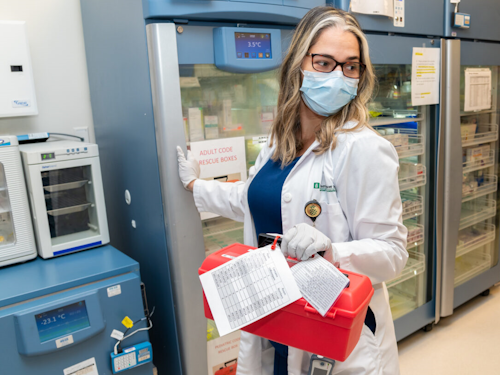
Infectious disease pharmacists specialize in the use of antimicrobial medications to treat infectious diseases. They work closely with healthcare teams to optimize antibiotic therapy and manage antimicrobial stewardship programs.
Image source: Board of Pharmacy Specialties
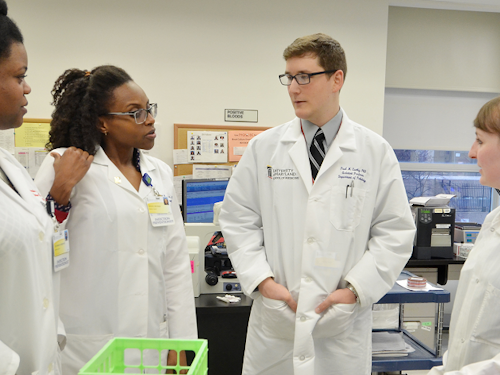
Infectious disease pharmacists specialize in the use of antimicrobial medications to treat infectious diseases. They work closely with healthcare teams to optimize antibiotic therapy and manage antimicrobial stewardship programs.
Image source: Association for Professionals in Infection Control and Epidemiology
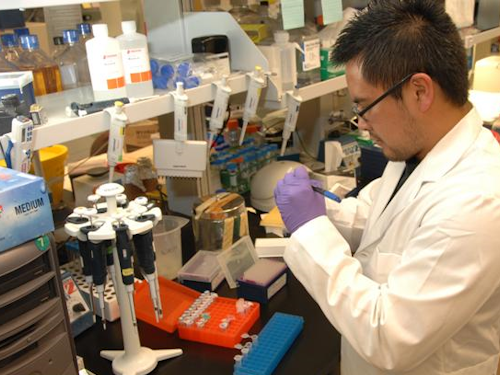
Medical laboratory scientists conduct complex laboratory tests to diagnose and monitor diseases. They work with various types of samples, including blood, urine, and tissues.
Image source: Wikipedia

Medical science liaisons act as a bridge between pharmaceutical companies and healthcare professionals, providing scientific information and support related to infectious diseases.
Image source: IQVIA

Public health nurses work within communities to promote health, prevent disease, and reduce health disparities. They focus on improving the overall health of populations through education, advocacy, and health services.
Image source: Nightingale College
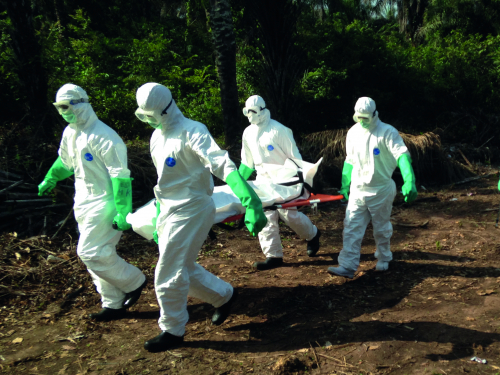
Tropical disease specialists focus on diseases that are prevalent in tropical and subtropical regions. They conduct research, provide treatment, and develop prevention strategies.
Image source: NHS